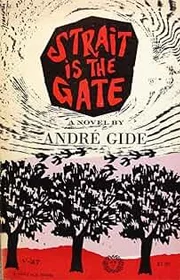
“Strait is the Gate,” written by André Gide, is a poignant exploration of love, desire, and the complexities of human relationships. The narrative follows the lives of two childhood friends, Jerome and Alissa, as they navigate the challenges of growing up and the intricacies of their evolving feelings for one another. Set against the backdrop of late 19th-century France, the novel delves into the profound impact of societal norms, moral values, and personal aspirations on the characters’ destinies. As Jerome grapples with his emotions and the consequences of his choices, the story unfolds with a sense of melancholy and introspection. Gide’s lyrical prose and keen psychological insights provide a captivating examination of the human condition and the elusive nature of true happiness. “Strait is the Gate” is a thought-provoking tale that explores the nuances of love and the paths individuals choose in their pursuit of fulfillment.
Read Strait is the Gate Flipbook:
Listen to Strait is the Gate Audiobook:
Title: “Strait is the Gate”
Author: André Gide
Publication Year: 1909
Genre: Psychological and philosophical fiction
Setting: Late 19th-century France
Protagonists: Childhood friends Jerome and Alissa
Themes: Love, desire, morality, societal expectations
Narrative Style: Reflective and introspective
Title Significance: Metaphor for the challenges in the pursuit of spiritual or personal fulfillment
Legacy: Considered a classic in French literature, contributing to Gide’s literary reputation.